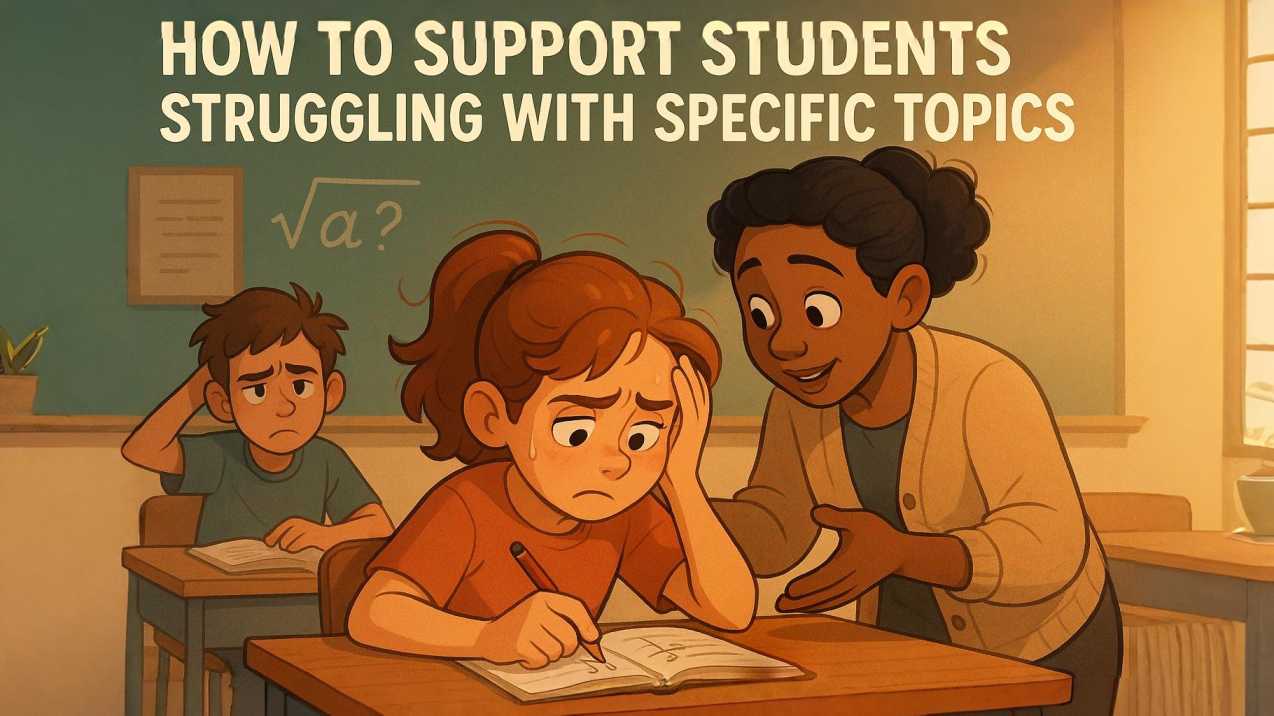Loading advertisement...
05-07-2025

Struggling in academics is not a sign of failure—it’s a signal for support. Every student has unique strengths and challenges, and when a particular subject feels overwhelming, what they need most is compassionate support and targeted guidance. Whether you're a teacher, parent, or tutor, here’s how you can make a difference.
Understanding the root cause of the struggle helps in finding the right solution.
| Possible Causes | Description |
|---|---|
| Gaps in Foundational Knowledge | Missing earlier concepts that are essential for new learning |
| Learning Style Mismatch | Teaching style doesn't match how the student learns best |
| Lack of Confidence | Fear of failure or repeated struggles may reduce motivation |
| External Factors | Stress at home, health issues, or lack of resources |
| Language or Comprehension Barriers | Difficulty understanding the language or structure of the topic |
Before jumping into tutoring, assess which specific concepts the student is struggling with. Short quizzes, concept maps, or simple oral Q&A sessions can help.
📝 Example: If a student struggles with fractions, revisit basic division and use real-life examples (like pizza slices) for better understanding.
Keep the student motivated with visible progress:
Sometimes, students learn better from their peers. Pair them with a buddy or create small study groups for peer-led learning.
Struggling can lead to burnout or frustration. Break up long lessons with:
Students who struggle may need more exposure and repetition to internalize concepts. Reinforce through:
Provide additional support beyond regular class hours:
| Tool/Resource | Best For | How It Helps |
|---|---|---|
| Khan Academy | Math, Science, Test Prep | Step-by-step video lessons, practice problems |
| YouTube Channels | Any subject | Visual explanations of difficult topics |
| Quizlet | Vocabulary-heavy subjects | Flashcards and self-testing tools |
| Duolingo | Language learners | Interactive, gamified language practice |
| Google Classroom | General use | Organize assignments and resources |
| NCERT/SCERT Books | Indian curriculum-aligned learning | Clear, concise textbook explanations |
Supporting a struggling student is not about lowering expectations—it’s about providing the right tools, patience, and mindset to help them meet their full potential. With the right support system, every learner can succeed.
✅ Stay connected with Skool Guru for more educational tips, exam strategies, and academic guidance.
📞 Need help? Contact our mentors today!
Visit: www.skoolguru.in